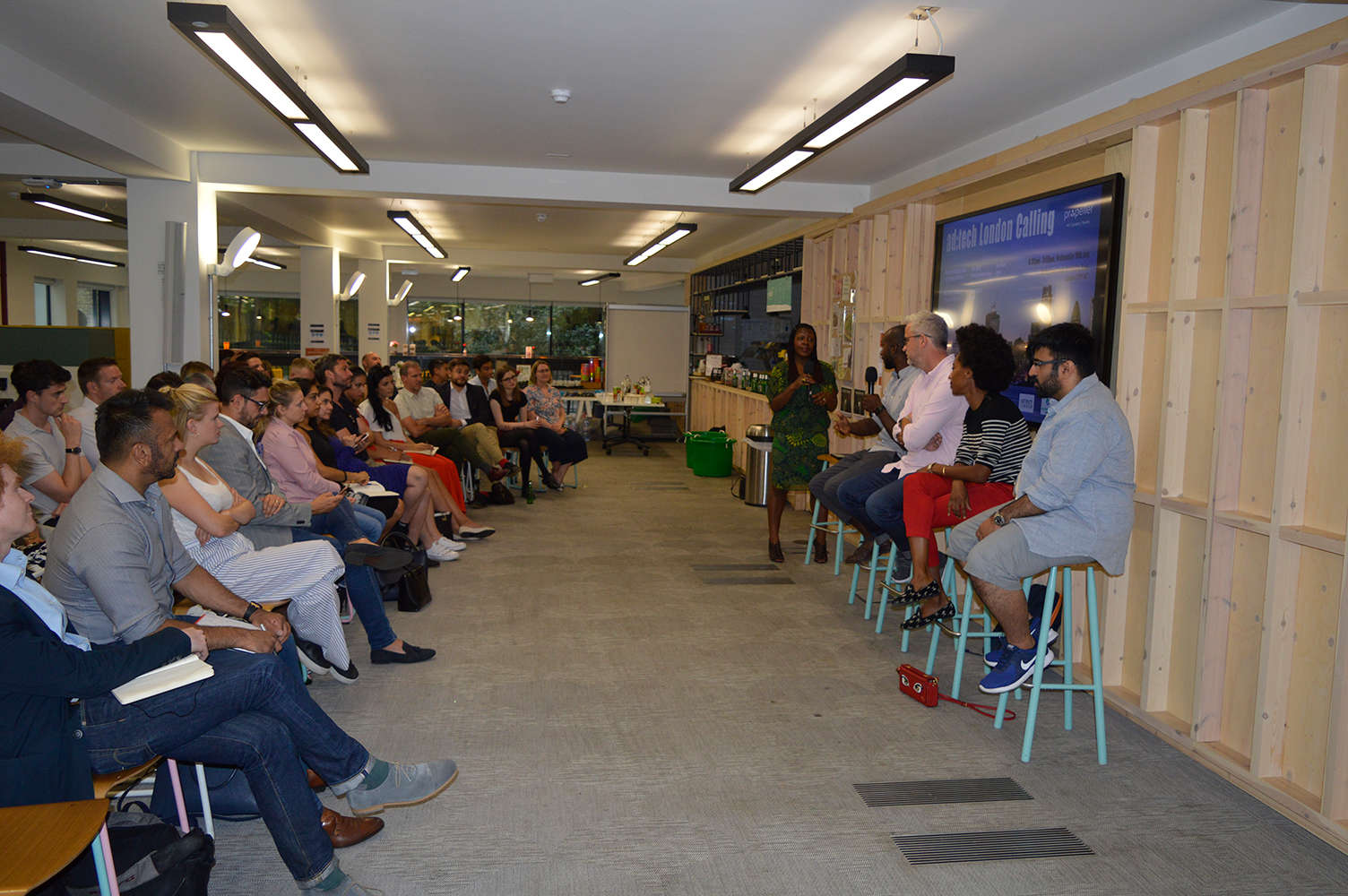
The big issues on ad tech players’ minds were aired at Propeller’s ad:tech London Calling panel, with over-complexity, GDPR, consumer trust and the potential of blockchain inevitably dominating a lot of the conversation.
The event, held with the help of MullenLowe London and CloserStill Media, featured Joy Dean of Ogury, Amir Malik of Accenture Interactive, Dino Myers-Lamptey of MullenLowe MediaHub and Gavin Stirrat of OpenX. It was chaired by Ellie Edwards-Scott of The Advisory Collective.
The panel agreed that ad tech suppliers were good at “self-sabotage” when trying to sell in to the C‑suite and Myers-Lamptey said: “As an industry we have to work a little bit harder to get people to understand these algorithms and the choices they make. There’s a lack of knowledge even with the people who work within these companies.”
Dean added: “We are making it hard to do the job when all we really want is to do business. It’s one thing to be transparent but we also need to be honest about what is working and what is not working for someone to trust you. You need to trust that your partners will still want to work with you even if things don’t go according to plan.
Stirrup said that agencies could be seeing 20 proposals a week for tech and finding someone senior, knowledgeable and who was likely to stick around the company a while was difficult. Malik added that the “commercial dynamics between the agency and client” had generated problems and suppliers were wrong to treat the agency as the end client – “in our model the client is the end client”. He added that Fortune 500 companies need more than an ‘out the box’ solution, rather their businesses needed advisors and technology partners.
Regarding GDPR, the panel agreed that the way it had been executed was a fail for the industry. The explanations offered for data capture should have been simple with clear examples of the benefits the bombardment of sign up emails, the long pages of T&Cs and the need to tick consent boxes on every website visit “had made the internet a little bit shittier”.
Dean said the industry had managed to annoy both customers who wanted to opt out of data-sharing and those who wanted to opt in. “It is our responsibility to make the proposition clearer – not make it more difficult.”
Malik added that the next trend should be ‘Vendor Relationship Management’ whereby people will manage their data-sharing easily via one app as “the UX right now is ridiculous.”
The panel was split on the merits of blockchain for the media industry with Stirrat saying “it was not there yet” and that every problem it is advertised to solve was already solvable if business behaviours were addressed. Myers-Lamptey added that no clients were asking about blockchain yet, but Malik stressed that it will have a huge role soon.
They agreed that the big future trend for consumers is likely to be a greater awareness of the value of their data and for marketers it will be the improvement of the efficiency and effectiveness of their advertising spend. Malik said: “Right now there is too much money going in to too many channels in a way that is just silly.”